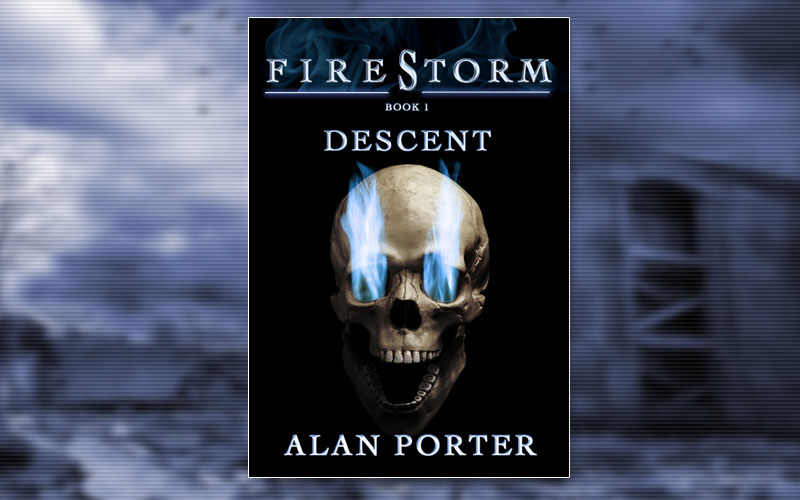
A world ravaged by war; humanity on the brink.
A stranger comes from another time.
Is he the saviour mankind has been waiting for... or something far darker?
When an accident with an experimental Time Machine plunges David Tweed into another dimension, at first he thinks he got lucky. He's alive, and the world in which he finds himself seems remarkably familiar.
Soon, however, he begins to realise how strange this world really is, how tangible is the evil that crawls across the shattered landscape.
But strangest of all, everyone he meets seems to have been expecting him. How do they know who he is, and just what have they been waiting for him to do?
In 1395 a man wanders into a military camp carrying a thick, leather-bound book. In the book are blueprints of every technological advance made by mankind in the nineteenth, twentieth and early twenty-first centuries. He has come to meet a man who can take this Great Secret and set his world on a course to peace, prosperity and a life of ease.
Superficially, his mission is a success. The countries of Africa, Asia and Europe are unified into the single super-continent of Levantium, and for six hundred years a small, stable population lives in harmony with each other and with the world around them.
But a small faction of zealots believe the Great Secret has been misused. They believe in top-down power; they believe mankind has become decadent and idle through their lives of healthy contentment. They plan to wrest control of the Great Secret back into the hands of the few.
Thus begins a cataclysmic war, known by those who started it as The Division War; known by the few who survive it as Firestorm. And out of the ashes come a host of evils, Barons of the new lands set on enslaving mankind and pushing them back to a darker, more superstitious age…
In 2014 three youngsters stumble into this world, and through a series of terrifying encounters learn that the fate of Levantium lies in their hands… but their actions could save it or plunge it into further an unimaginable hell…


Firestorm is not like any dystopian novel you’ve ever read. It is not a David and Goliath struggle between an honourable lead character and a dishonourable world. Many great authors trod that path fifty or more years ago, and many lesser authors insist on continuing to do so. Firestorm is an adventure story, but it is intended to be a whole lot more too…
The three novels of the Firestorm cycle were planned way back in 2003. The first book, ‘Descent’ was not published until 2008 (Book 2, ‘Realm of Violence’ in 2017. Book 3… at least 2019!). The sheer scope of the books meant this was an epic undertaking. At heart, the cycle is a retelling of Dante’s ‘Inferno’ remodelled as a satire in the tradition of Swift’s ‘Gulliver’s Travels’, Orwell’s ‘1984’ or Huxley’s ‘Brave New World’.
I certainly didn’t want to write a political polemic (indeed, the books’ politics are deliberately neutral), but I did want to cast Dante’s hellish characters as relevant to contemporary readers. Thus in the first book we meet, amongst others, characters representing Gluttony, Avarice and Lust. It would have been easy to portray these as characters worthy of our contempt, derision and even outright dismissal, but that would have been to miss the point. Instead, they are merely symptoms of a bigger malaise (the former two are portrayed as comical characters in the spirit of Hogarth or Bosch; we are meant to pity them, maybe relate to them, but never despise them). What makes the world of Firestorm dystopian is not just the people who inhabit it, but the motives that lie behind their lives.
Much is left to the reader. Different readers with different life experiences will come to entirely different conclusions about the books. I do not seek to place the blame for the ills of Firestorm’s world on politics, religion, human weakness or anything else. I tread a fine line (I hope), that allows each reader to view the world through a prism of their own experiences (and indeed prejudices!) and make their own decisions about how a peaceful and prosperous society made the slip into chaos and violence.
Back